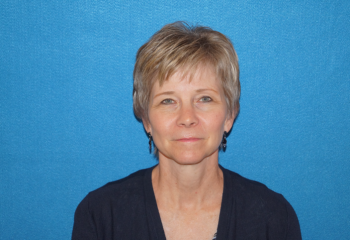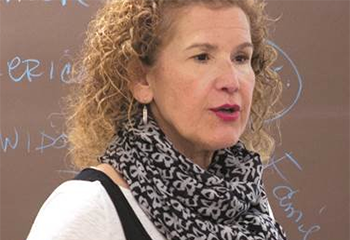—
Dean Doriam Camacho is an environmental nursing leader working to incorporate climate and health education and environmental justice into the nursing profession across Latin America. As dean of nursing faculty at Universidad Cooperativa de Colombia Campus Santa Marta, Camacho led the university in becoming the first Latin American pilot partner of the Nurses Climate Challenge School of Nursing Commitment.
Doriam Camacho first started researching the connection between the environment and health while pursuing a master’s degree in quality, safety and environmental management from University Viña del Mar in Valparaíso, Chile.
Ten years later, as dean of nursing faculty at Universidad Cooperativa de Colombia Campus Santa Marta, Camacho is now working to prepare the next generation of nurses for climate-related health impacts and help them understand the role nurses can play to address critical issues. The university has 18 campuses across Colombia, four of which offer the nursing program.
Universidad Cooperativa de Colombia Campus Santa Marta was the first Latin American nursing school to join the School of Nursing Commitment, which launched in 2020. The commitment offers faculty the opportunity to use ready-made Nurses Climate Challenge resources to teach their students about the health impacts of climate change.
“When I saw the Nurses Climate Challenge, I realized it was right for our faculty,” Camacho shared. “We saw it as a great way to introduce climate and health content into the curricula.”
The university committed to training nurses on environmental health, analyzing the relationship between health and climate change, and promoting healthy environments.
“Nursing students must learn about the relationship between health and climate in school,” Camacho said. “It’s urgent to have trained nurses incorporating the theme of health and the environment into their work.”
Camacho and her colleagues tailored Nurses Climate Challenge resources to address Latin American climate impacts, using them as a reference for courses, workshops, and conferences.
The university is incorporating climate and health content into its nursing program curriculum, offering courses on topics like environmental nursing and safer chemicals. University faculty and students are also conducting research related to nursing and the environment on topics including knowledge and attitudes about environmental health, promoting environmental health in nursing in the region, and the relationship between bioethics and environmental health.
Reflecting on her experience, Camacho shares that the greatest challenge has been shifting the paradigm beyond nursing’s traditional focus on clinical care. Now, faculty across Universidad Cooperativa de Colombia Campus Santa Marta’s nursing program educate about environmental health, and students engage with climate and health-related content from their first to their last semester in the program.
The response from students, she shares, has been amazing.
“We’ve worked with our nursing students, teachers, and graduates, and have participated in conferences with various universities in Latin America,” Camacho said. “When we started to do this work and other nursing programs saw what we were doing, they invited us to speak to students. We began to create a network with colleagues from programs throughout the region.”
Camacho also helped establish the Alliance of Nurses for Healthy Environments (ANHE) Latinoamérica, which facilitates engagement in legislative advocacy, promotes research on nursing and the environment, proposes guidelines for incorporating climate and health into Latin American nursing program curricula, and raises awareness about the importance of caring for the environment.
As a member of ANHE Latinoamérica’s climate justice steering committee, Camacho contributed to development of ANHE’s climate justice agenda for nursing, which was shared at COP26. The agenda aims to accelerate international collaboration and partnerships with nursing organizations for research, practice, and teaching on climate justice. Find out more about the Global Nurse Agenda for Climate Justice.
“Before I started meeting with ANHE’s climate justice steering committee, we weren’t talking about climate justice nursing in Latin America,” Camacho said. “We began translating the ideas, adapting them for our context, and adding subjects important to us so that we could take part in the work.”
In the coming year, Camacho will continue working with ANHE colleagues from different Latin American countries to bring the climate justice agenda to nursing and nursing education throughout the region.
“The new generation of nurses has so much energy and can make an incredible difference,” Camacho said. “Nursing professionals are experts in providing health education, and we can incorporate the theme of health and climate change into all the activities we carry out at the community and clinical level to identify environmental risk factors and promote environmental health.”
Doriam Camacho lives in Santa Marta, Colombia, on the Caribbean coast. She enjoys reading, seeing movies, going to the beach, meeting friends for coffee at local cafés, and spending time with her husband and son. She has a Ph.D. in nursing, health, and human care, has written several articles related to the topic, and is a co-founder of ANHE Latinoamérica.
If you are interested in learning about how your school of nursing can join the Nurses Climate Challenge School of Nursing Commitment, visit our webpage and fill out an interest form today.




